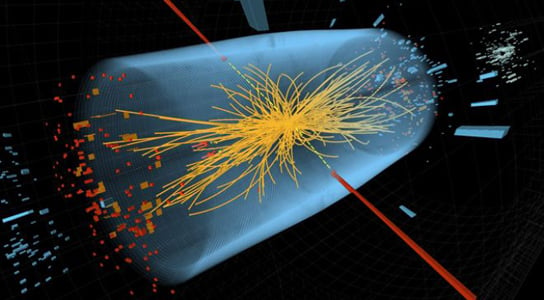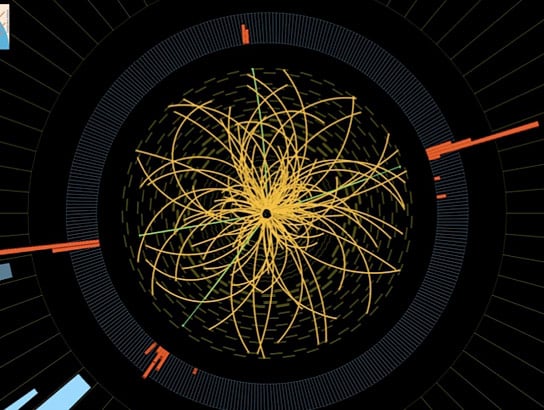
In December, it was announced that the two main experiments at the Large Hadron Collider (LHC), which is still the world’s largest and highest-energy particle accelerator, had possibly ferreted out the inscrutable Higgs boson. Today, the experiments at the LHC submitted the results of their analyses.
The analyses don’t contain any new data, naturally since the LHC stopped colliding protons back in November, and these results are just rehashes of the earlier runs.

The Higgs is as of yet a hypothetical elementary particle, which is supposed to exist according to the Standard Model of particle physics. The Higgs field is a hypothetical, ubiquitous quantum field that actually has a non-zero value in its ground state, which explains why fundamental particles, such as quarks and electrons, have mass.
For the Compact Muon Solenoid, particle physicists have been able to look at another kind of possible decay from the Higgs, which allowed them to boost their Higgs signal from 2.5σ to 3.1σ. Together with data from the other detector, ATLAS, overall Higgs signal strength is at 4.3σ. According to statistics, there’s a 99.996% chance that this signal is right and that it belongs to the Higgs.
Even though this sounds very convincing, it’s certainly not a confirmed fact, as of yet. The LHC will start firing once again this spring, and then physicists will be able to get closer to the observable truth. For now, scientists are meeting in Chamonix, France, to discuss at what power the LHC will run at this year. The latest rumors indicate that they will push the machine from 7 to 8 TeV, which will also increase its luminosity.